Find Help
More Items From Ergsy search
-
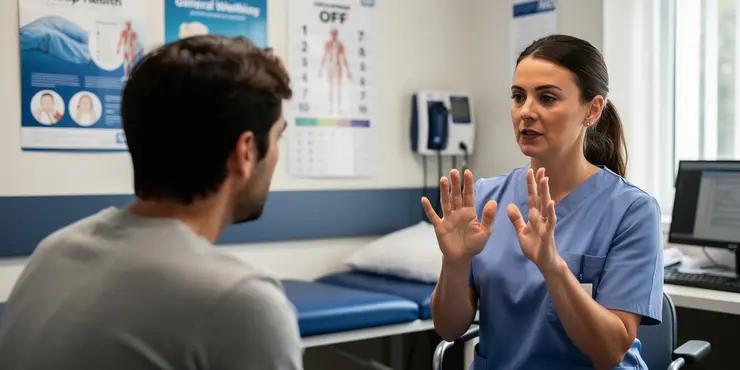
BSL - Insomnia introduction
Relevance: 100%
-

BSL - Treatments for insomnia
Relevance: 99%
-
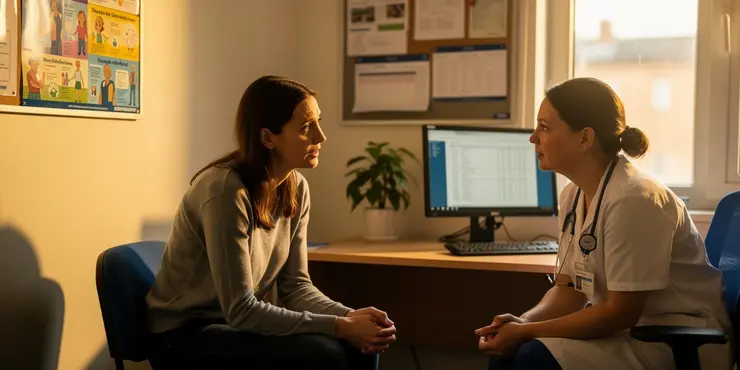
BSL - Causes of insomnia
Relevance: 99%
-
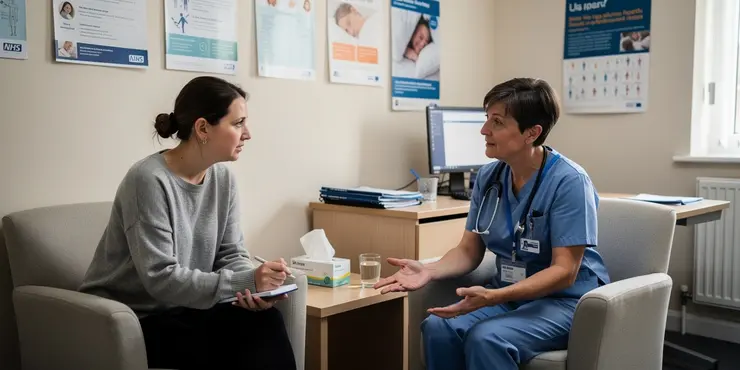
BSL - Insomnia self-help tips
Relevance: 94%
-
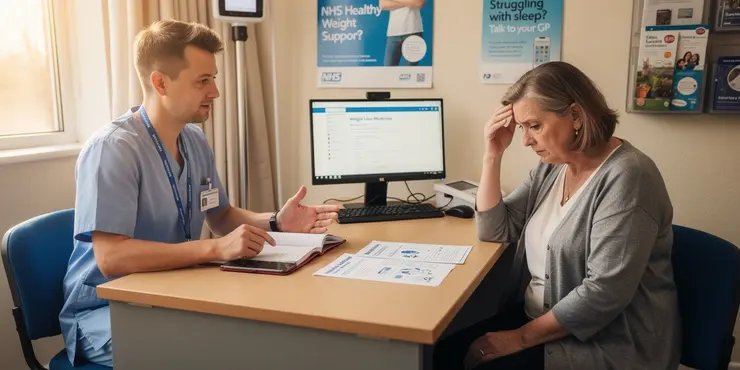
Is insomnia a common side effect of weight loss drugs?
Relevance: 86%
-
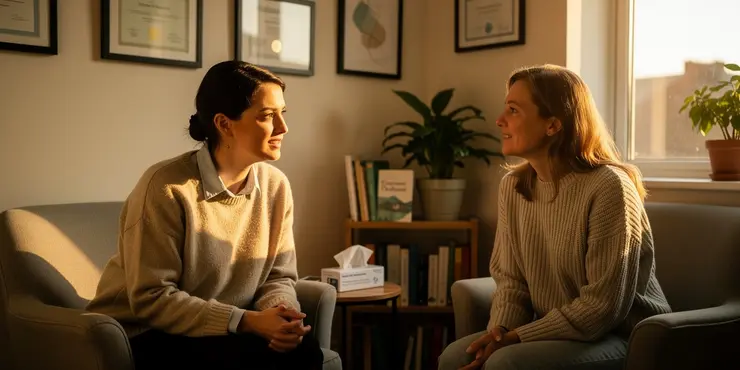
Talking therapy 'should be offered before pills' for people with insomnia | NHS Behind the Headlines
Relevance: 75%
-
How does sleep quality relate to menopause symptoms?
Relevance: 25%
-
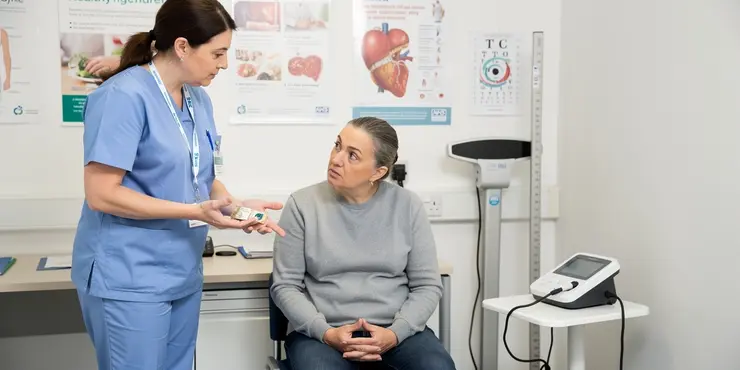
What are the side effects of caffeine pouches?
Relevance: 23%
-
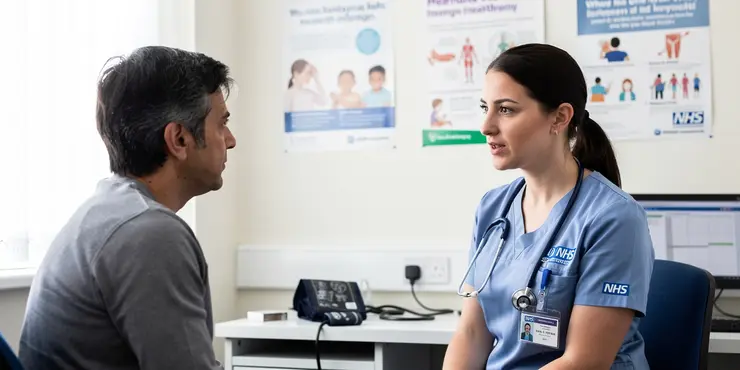
Who should avoid using caffeine pouches?
Relevance: 23%
-
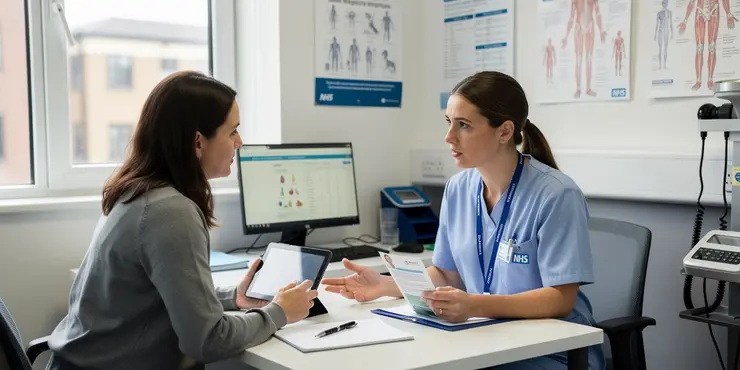
What side effects can I expect from weight loss drugs?
Relevance: 22%
-

What are common symptoms of a concussion?
Relevance: 20%
-
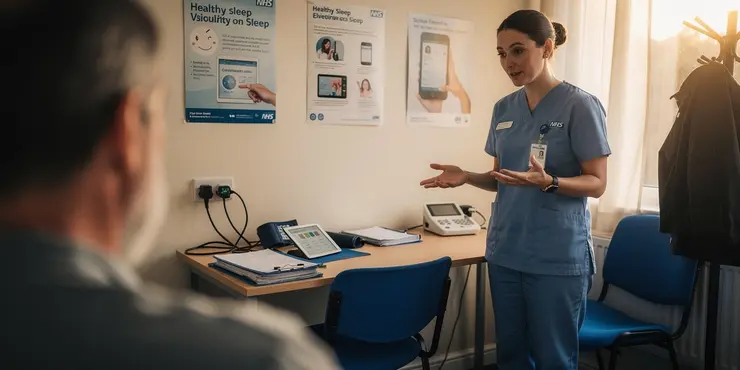
What is the main finding of the study linking screen time to sleep quality?
Relevance: 19%
-
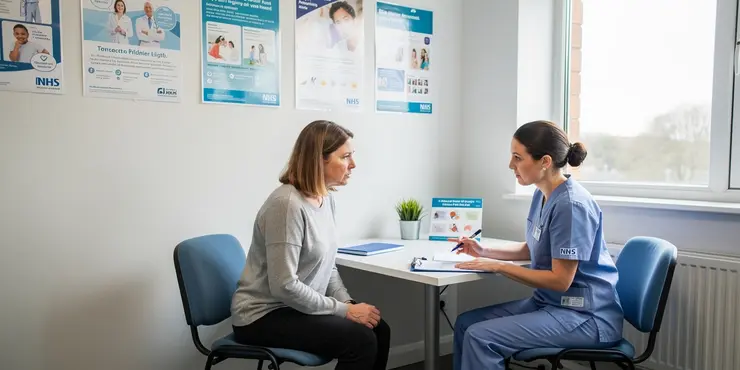
Are bed bugs dangerous?
Relevance: 18%
-
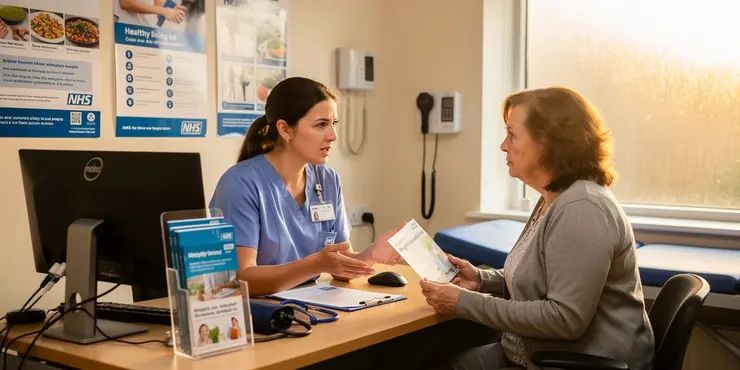
What are common side effects of weight loss drugs?
Relevance: 18%
-
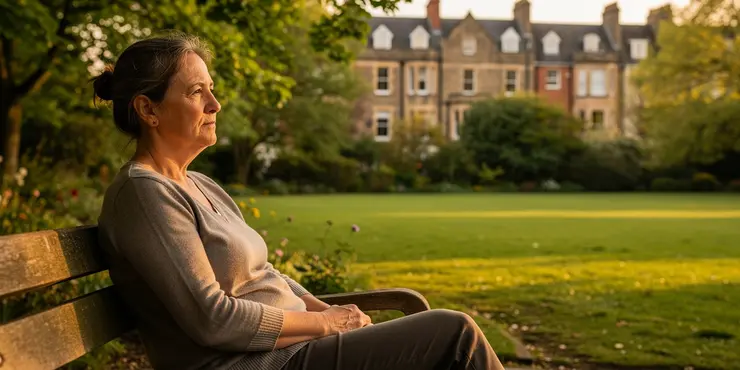
What are some signs that someone might be experiencing loneliness?
Relevance: 17%
-
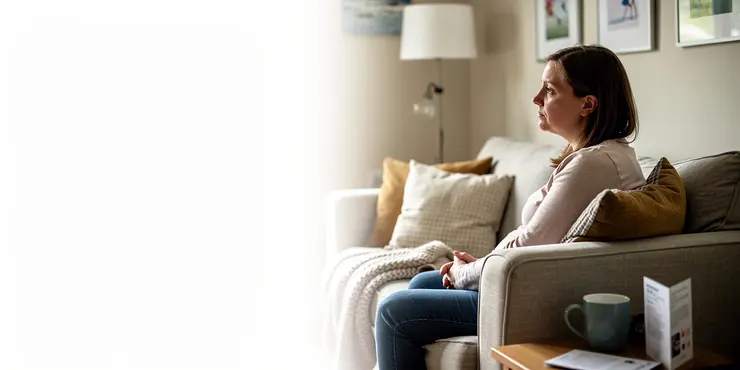
What are the symptoms of postnatal depression?
Relevance: 17%
-
How does exercise impact menopause masking?
Relevance: 17%
-
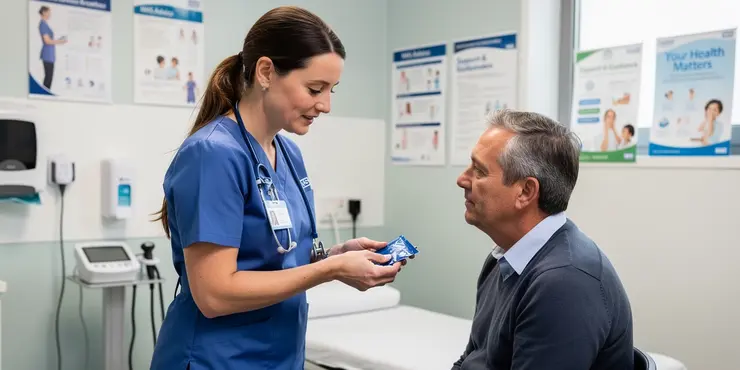
Are caffeine pouches safe?
Relevance: 17%
-
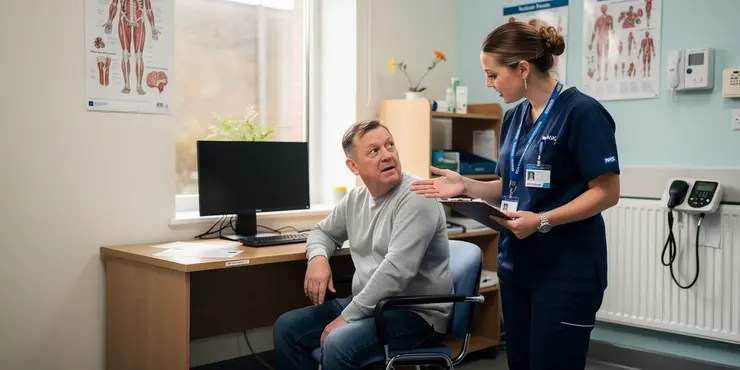
What are the potential benefits of CBD?
Relevance: 17%
-
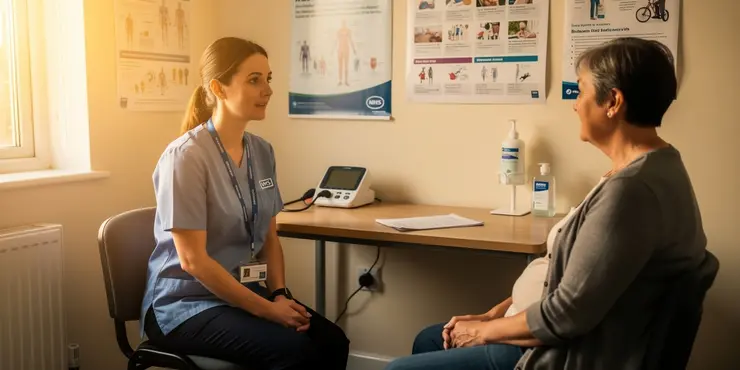
Is it possible for alcohol alone to cause similar symptoms?
Relevance: 16%
-
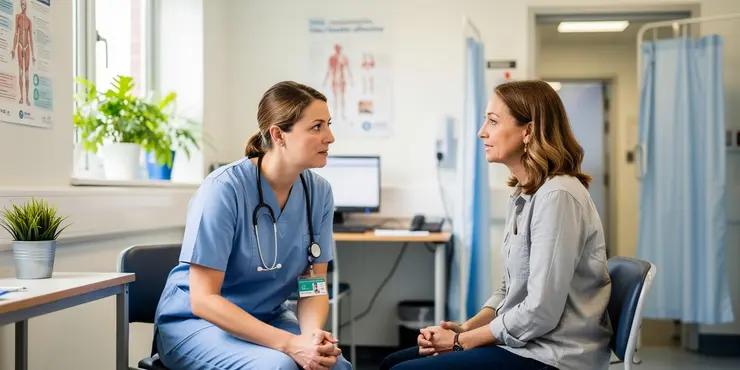
Can SAD occur in the summer?
Relevance: 16%
-
Are high caffeine drinks safe?
Relevance: 16%
-
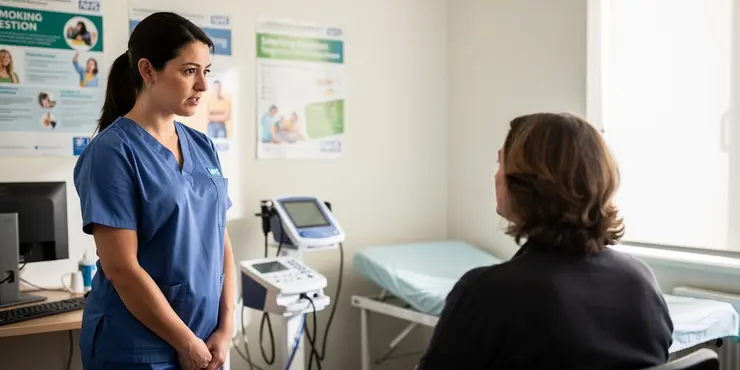
Can caffeine pouches be used for quitting smoking?
Relevance: 16%
-
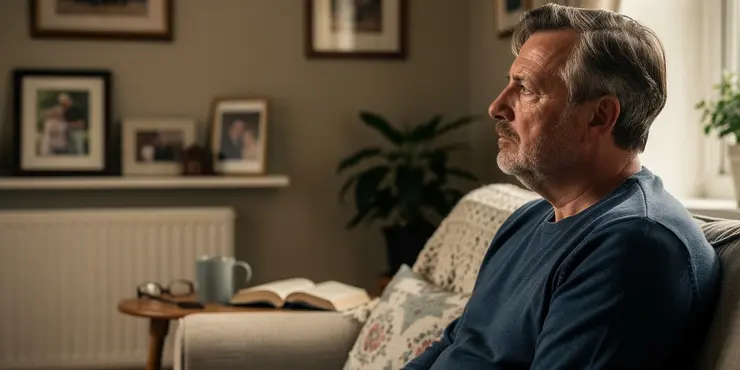
What are some physical health effects of loneliness?
Relevance: 16%
-

GP Nursing Most Common Medications UK.
Relevance: 13%
-
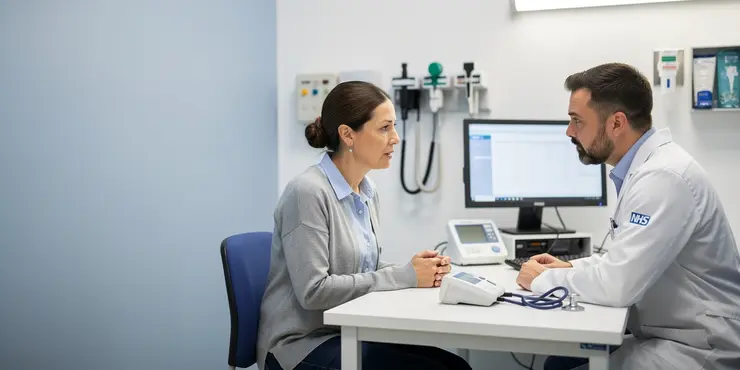
What are the symptoms of Super Flu?
Relevance: 13%
-
What are common symptoms of menopause?
Relevance: 13%
-
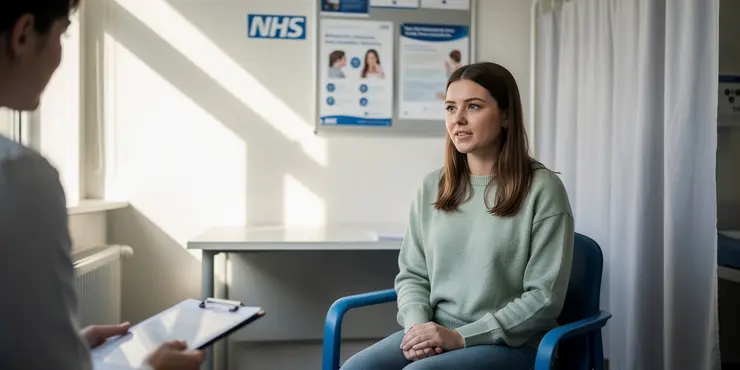
What are the known side effects of ketamine usage?
Relevance: 13%
-
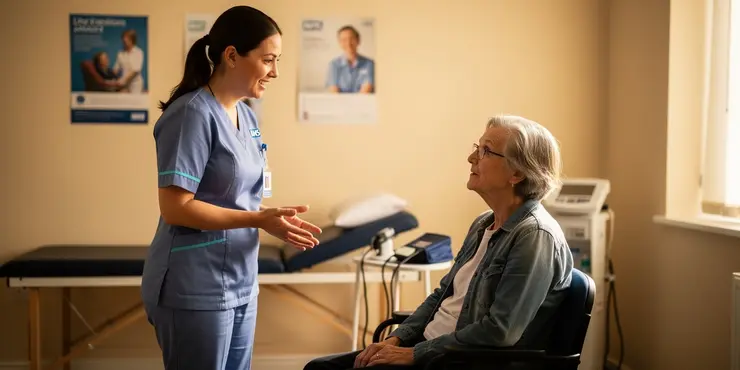
Are there any common side effects of GLP-1 medications?
Relevance: 13%
-
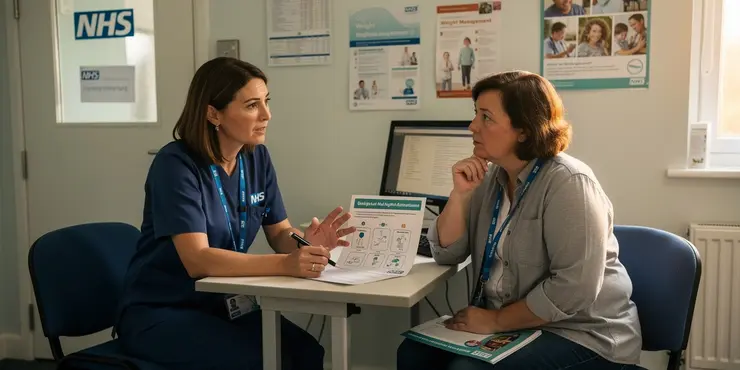
Is dizziness a possible side effect of weight loss medications?
Relevance: 12%
-
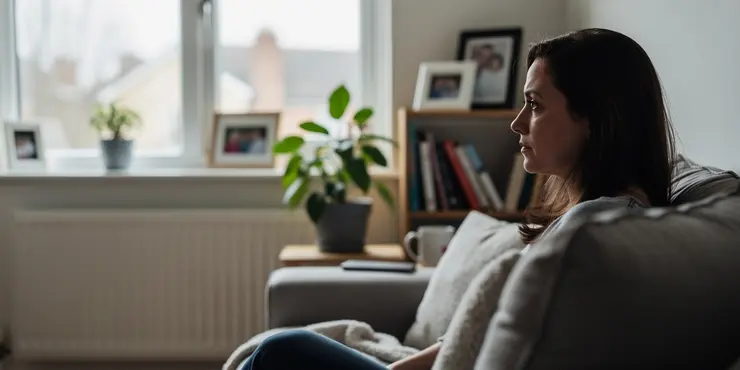
6 Signs of Emotional Abuse and Neglect
Relevance: 12%
-
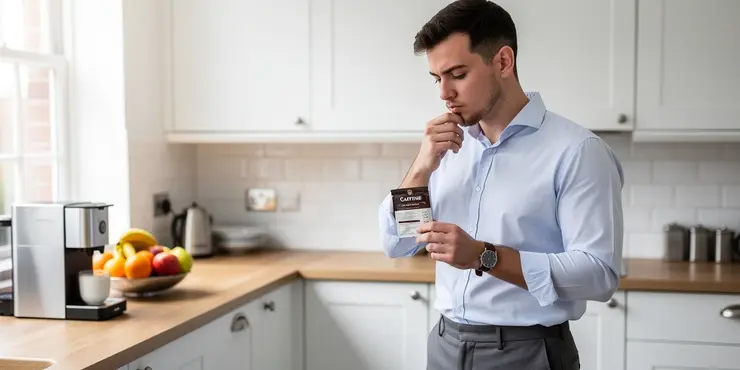
What ingredients are typically found in caffeine pouches?
Relevance: 12%
-
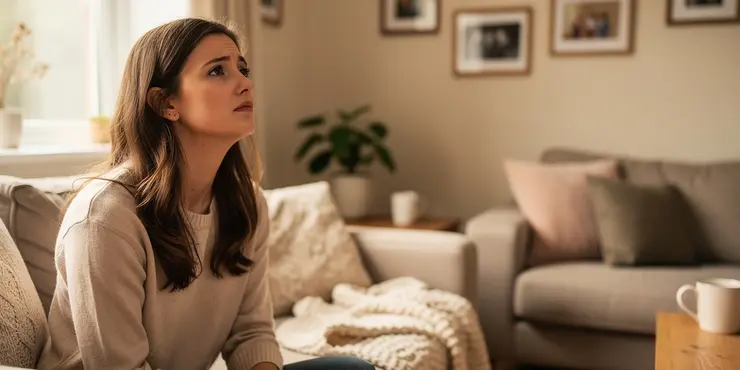
Coping with Stress and Anxiety
Relevance: 12%
-
Can lifestyle changes help manage tinnitus?
Relevance: 12%
-
What symptoms can overlap between menopause and the early stages of dementia?
Relevance: 12%
-

Are children more affected by screen time in relation to sleep than adults?
Relevance: 12%
-
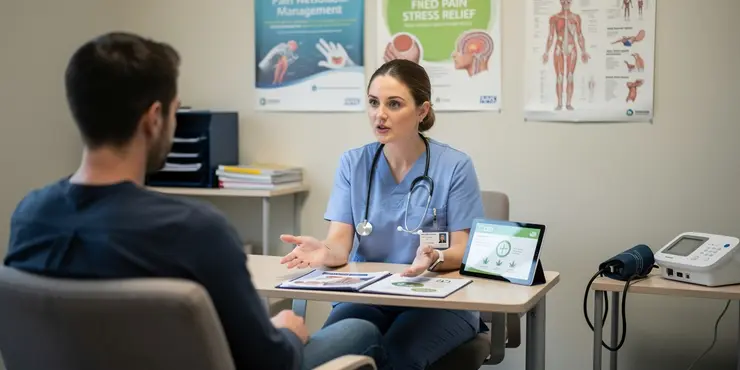
What is CBD?
Relevance: 12%
-
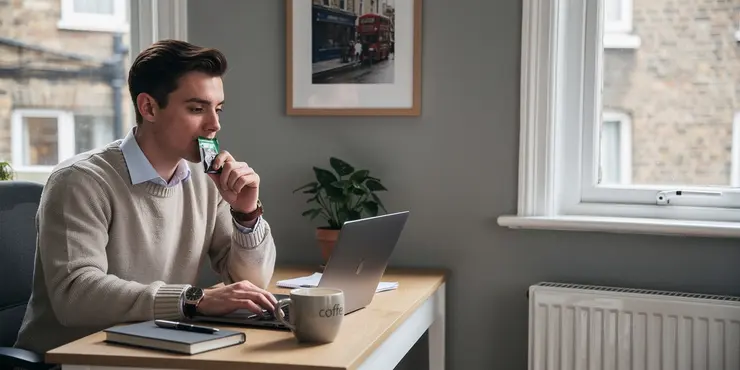
What are Caffeine Pouches?
Relevance: 12%
-
Can cortisol levels impact mood and mental health?
Relevance: 12%
-
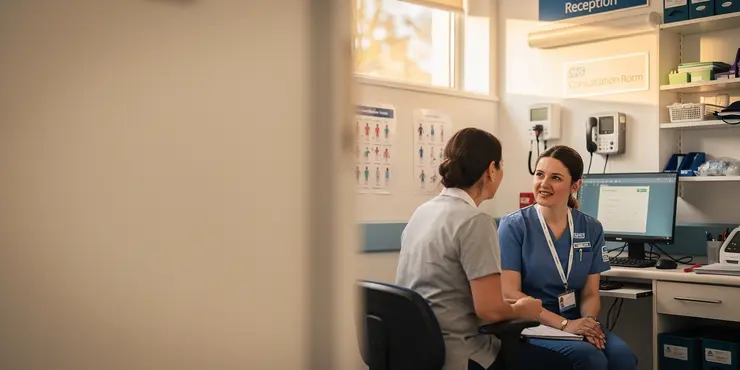
What defines a controlled substance?
Relevance: 12%
Introduction to British Sign Language (BSL) and Insomnia
What is British Sign Language (BSL)?
British Sign Language, commonly referred to as BSL, is a visual language used predominantly by the Deaf community in the United Kingdom. Unlike spoken languages that rely on vocalization, BSL uses hand shapes, facial expressions, and body movements to convey meaning. Recognized as a minority language in the UK in 2003, BSL has its own grammar and syntax, making it a unique and rich mode of communication.
Understanding Insomnia
Insomnia is a common sleep disorder that affects a significant portion of the UK population. It is characterized by difficulty falling asleep, staying asleep, or experiencing restorative sleep. People suffering from insomnia often struggle with daytime fatigue, mood disturbances, and impaired cognitive functions. It can be classified into two primary categories: acute insomnia, which is short-term and often linked to stress, and chronic insomnia, lasting for a month or more, potentially indicating underlying health issues.
Impact of Insomnia on Daily Life
Insomnia can significantly affect an individual's quality of life. Chronic sleep deprivation can lead to increased risks of mental health issues such as anxiety and depression, cardiovascular diseases, and impaired immune function. Daytime symptoms, such as irritability, lack of concentration, and poor decision-making skills, can affect work performance and personal relationships, leading to a diminished overall sense of well-being.
Communicating about Insomnia in BSL
For Deaf individuals or those who use BSL as their primary language, discussing health issues like insomnia can present unique challenges. Health services in the UK have been increasingly aware of the need for accessible communication, including the availability of BSL interpreters and resources. Ensuring that Deaf individuals have access to information and healthcare in their native language is crucial for effective diagnosis and treatment of insomnia.
Resources and Support
Various resources are available for those dealing with insomnia, including sleep clinics, mental health services, and online platforms offering advice and support. For the Deaf community, organizations such as Action on Hearing Loss and the British Deaf Association work towards improving access to healthcare and promoting the use of BSL in medical settings. These resources provide valuable information and support for managing insomnia and improving sleep hygiene.
Introduction to British Sign Language (BSL) and Sleep Troubles
What is British Sign Language (BSL)?
British Sign Language, or BSL, is a way of using hands and faces to talk. In the UK, many Deaf people use BSL. It is a special language with its own rules. BSL does not use spoken words. Instead, you use hand shapes and body movements. BSL was recognized as an important language in the UK in 2003.
What is Insomnia?
Insomnia is when people have trouble sleeping. This means they cannot fall asleep or stay asleep. It makes them feel tired during the day. There are two types of insomnia: short-term insomnia, often due to stress, and long-term insomnia, which may last a month or more and might mean other health problems.
How Insomnia Affects Daily Life
Not getting enough sleep can make life hard. It can make people feel grumpy, sad, or worried. It can also affect their heart and make them sick more often. During the day, people might find it hard to pay attention, make decisions, or get along with others.
Talking about Insomnia in BSL
For people who use BSL, talking about health issues like insomnia can be tricky. It is important for doctors and health workers to use BSL interpreters. This helps Deaf individuals get the right care and information about insomnia.
Where to Get Help and Support
There are places that can help with sleep problems. These include sleep clinics, mental health services, and websites with good advice. For the Deaf community, groups like Action on Hearing Loss and the British Deaf Association help make sure BSL is used in healthcare. They give support and information to help manage insomnia and sleep better.
Frequently Asked Questions
What is insomnia?
Insomnia is a sleep disorder where individuals have trouble falling asleep, staying asleep, or getting restful sleep despite having the opportunity to sleep.
What are the common symptoms of insomnia?
Common symptoms include difficulty falling asleep, waking up during the night, waking up too early, and not feeling refreshed after sleep.
How common is insomnia in the UK?
Around one-third of people in the UK suffer from insomnia at some point in their lives.
What are the main types of insomnia?
The main types are acute insomnia, which is short-term, and chronic insomnia, which occurs at least three nights a week for three months or longer.
What causes insomnia?
Causes can include stress, anxiety, depression, medications, caffeine, nicotine, alcohol, and poor sleep habits.
How is insomnia diagnosed?
A doctor may diagnose insomnia based on sleep history, a physical exam, and sometimes sleep studies to rule out other sleep disorders.
Are there any home remedies for insomnia?
Yes, some common home remedies include maintaining a regular sleep schedule, creating a restful environment, avoiding caffeine and large meals before bedtime, and practicing relaxation techniques.
Can lifestyle changes help manage insomnia?
Yes, lifestyle changes such as improving sleep hygiene, reducing stress, limiting naps, and staying active can help manage insomnia.
Are there any over-the-counter medications for insomnia?
Over-the-counter options like antihistamines can be used, but they are not recommended for long-term use due to potential side effects and dependence.
When should I see a doctor for insomnia?
You should see a doctor if insomnia persists for more than a few weeks, affects your daily life, or if you experience other concerning symptoms like severe mood changes.
Can therapy help with insomnia?
Yes, cognitive behavioural therapy for insomnia (CBT-I) is a highly effective treatment that addresses the thoughts and behaviours contributing to insomnia.
How does stress affect sleep?
Stress can cause hyperarousal, making it difficult to fall asleep or stay asleep by triggering the body's fight-or-flight response.
Are there any natural supplements for insomnia?
Some people use natural supplements like melatonin, valerian root, and chamomile. However, it's important to consult with a healthcare provider before starting any supplement.
What role does diet play in insomnia?
Consuming too much caffeine, nicotine, heavy meals late at night, and alcohol can interfere with sleep. A balanced diet and regular meal times may promote better sleep.
Can exercise help with insomnia?
Regular physical activity can help improve sleep quality and duration, but it's best to avoid vigorous exercise close to bedtime.
What is insomnia?
Insomnia means you can't sleep.
It can be hard to fall asleep.
Or you might wake up a lot at night.
You can feel very tired during the day.
Some tools that can help are:
- Listen to calm music.
- Try reading a book.
- Use relaxing sounds at bedtime.
Insomnia means you can't sleep well. It can be hard to fall asleep, hard to stay asleep, or hard to rest even if you try to sleep.
What happens if you have trouble sleeping?
If you find it hard to sleep, you might:
- Stay awake for a long time before falling asleep.
- Wake up many times during the night.
- Wake up very early and can't go back to sleep.
- Feel tired when you wake up.
You can try:
- Reading a book to relax.
- Listening to calming music.
- Making your room dark and quiet.
- Going to bed at the same time every night.
Here are some signs of having trouble with sleep:
- It is hard to fall asleep.
- You wake up in the night.
- You wake up too early.
- You don't feel rested after sleeping.
To help with sleep, you can try:
- Listening to calming music.
- Reading a nice book.
- Using a night light.
- Asking a grown-up for help.
How many people have trouble sleeping in the UK?
Many people in the UK find it hard to sleep. This is called insomnia.
Here are some tips to help with insomnia:
- Go to bed at the same time every night.
- Keep the bedroom quiet and dark.
- Try not to use screens like phones or tablets before bed.
About one in three people in the UK have trouble sleeping at some time in their life.
What are the main kinds of sleep problems?
There are two main types of not being able to sleep, called insomnia. One type is short-term and goes away quickly. This is called acute insomnia. The other type lasts a long time. It happens at least three nights a week, for three months or more. This is called chronic insomnia.
Why can't people sleep?
There are many things that can make sleep hard. These can be feeling worried, sad, or stressed. Some things you eat or drink can cause problems too. These are coffee, alcohol, and cigarettes. Some medicines can make it hard to sleep. Not having good sleep habits can also be a problem.
To help, you can try some things. You can make a bedtime routine and stick to it every night. This means going to bed and waking up at the same time. You can also try relaxing before bed, like reading a book or listening to calm music. Make sure your bedroom is quiet and dark. These things can help you sleep better.
How do doctors know if you have trouble sleeping?
Doctors ask questions about your sleep. They might ask:
- How long it takes for you to fall asleep.
- If you wake up during the night.
- If you feel tired during the day.
They might also ask you to keep a sleep diary. This is where you write down your sleep patterns every day.
You can ask someone to help you with the diary, like a family member or a friend.
A doctor can find out if you have trouble sleeping called insomnia. They do this by asking about your sleeping, checking your body, and sometimes doing special tests while you sleep to see if something else is making it hard for you to sleep.
You can use apps or tools like sleep trackers to help understand your sleep better. Also, relaxing music or bedtime stories can help you sleep well.
Can I Try Simple Ways at Home to Sleep Better?
Yes, here are some simple tips to help you sleep better:
- Go to bed and wake up at the same time every day.
- Make your bedroom quiet and comfy.
- Don't drink drinks like coffee before bed. Don't eat big meals before sleeping.
- Try to relax before bed. You can do deep breathing or listen to calm music.
Can changing my daily habits help me sleep better?
Yes, changing how you live can help you sleep better at night. Try these things: get good sleep, feel less stressed, take fewer naps, and stay busy during the day.
Can you buy sleep medicine at the store?
You can buy medicine like antihistamines at the store without a doctor's prescription. These can help you feel better. But it's not a good idea to use them for a long time. They might cause problems or your body might get too used to them.
When to Go to the Doctor for Sleeping Problems
Do you find it hard to sleep at night?
There are things that can help you sleep better:
- Make your room dark and quiet.
- Go to bed at the same time every night.
- Try not to watch TV or play on your phone before sleep.
If you have tried these things and still can't sleep, it might be a good idea to talk to a doctor.
Here is when you should see a doctor:
- You can't sleep well for 3 or more nights in a row.
- You feel very tired during the day because you can't sleep at night.
- Your sleep problems last for more than a few weeks.
The doctor can help you find out why you can't sleep and suggest ways to help you rest better.
If you can't sleep for more than a few weeks, you should see a doctor. Go to the doctor if your sleep troubles make your daily life hard, or if you feel very sad or angry.
Can talking to someone help you sleep better?
Do you find it hard to sleep at night? Talking to a therapist might help you.
A therapist is someone who listens to you and gives advice. They can teach you ways to relax and calm your mind. This can make it easier for you to fall asleep.
Here are some tips that might help:
- Try to go to bed at the same time every night.
- Relax by reading a book or taking deep breaths.
- Keep the bedroom quiet and dark.
If you need more help, ask a parent or teacher about seeing a therapist.
Yes, CBT-I helps fix sleep problems. It works by changing the way you think and act that stops you from sleeping well.
How can being worried or upset change the way we sleep?
Stress can make your body feel like it's on high alert. This can make it hard to fall asleep or stay asleep. It's like your body is ready to fight or run away.
Are there natural ways to help me sleep better?
Do you have trouble sleeping? You might wonder if there are natural things to help. Yes, there are!
Here are some ideas:
- Try drinking warm milk or herbal tea before bed.
- You can listen to calming music or sounds.
- Think about using a night light or a cuddly toy for comfort.
- An adult can help you by reading a bedtime story.
These things might help you sleep better.
Some people take natural helpers like melatonin, valerian root, and chamomile to help them. But it's a good idea to talk to a doctor before you start taking any of these.
How does food help with sleep problems?
Drinking a lot of caffeine and alcohol can make it hard to sleep. Eating big meals late at night is also not good for sleep. Try to eat healthy foods at normal times to sleep better.
Can exercise help you sleep better?
Exercise means moving your body, like walking, running, or playing.
Insomnia is when you find it hard to sleep at night.
Does moving your body help you sleep faster and better?
Try doing some exercise in the day. It might help you sleep well at night.
Use calm breathing or soft music to help you relax before bed. These are good tools to help you sleep too.
Doing exercise can help you sleep better and longer. But, try not to do hard exercise just before going to bed.
Useful Links
This website offers general information and is not a substitute for professional advice.
Always seek guidance from qualified professionals.
If you have any medical concerns or need urgent help, contact a healthcare professional or emergency services immediately.
Some of this content was generated with AI assistance. We’ve done our best to keep it accurate, helpful, and human-friendly.
- Ergsy carfully checks the information in the videos we provide here.
- Videos shown by Youtube after a video has completed, have NOT been reviewed by ERGSY.
- To view, click the arrow in centre of video.
- Most of the videos you find here will have subtitles and/or closed captions available.
- You may need to turn these on, and choose your preferred language.
- Go to the video you'd like to watch.
- If closed captions (CC) are available, settings will be visible on the bottom right of the video player.
- To turn on Captions, click settings .
- To turn off Captions, click settings again.
More Items From Ergsy search
-

BSL - Insomnia introduction
Relevance: 100%
-

BSL - Treatments for insomnia
Relevance: 99%
-

BSL - Causes of insomnia
Relevance: 99%
-

BSL - Insomnia self-help tips
Relevance: 94%
-

Is insomnia a common side effect of weight loss drugs?
Relevance: 86%
-

Talking therapy 'should be offered before pills' for people with insomnia | NHS Behind the Headlines
Relevance: 75%
-
How does sleep quality relate to menopause symptoms?
Relevance: 25%
-

What are the side effects of caffeine pouches?
Relevance: 23%
-

Who should avoid using caffeine pouches?
Relevance: 23%
-

What side effects can I expect from weight loss drugs?
Relevance: 22%
-

What are common symptoms of a concussion?
Relevance: 20%
-

What is the main finding of the study linking screen time to sleep quality?
Relevance: 19%
-

Are bed bugs dangerous?
Relevance: 18%
-

What are common side effects of weight loss drugs?
Relevance: 18%
-

What are some signs that someone might be experiencing loneliness?
Relevance: 17%
-

What are the symptoms of postnatal depression?
Relevance: 17%
-
How does exercise impact menopause masking?
Relevance: 17%
-

Are caffeine pouches safe?
Relevance: 17%
-

What are the potential benefits of CBD?
Relevance: 17%
-

Is it possible for alcohol alone to cause similar symptoms?
Relevance: 16%
-

Can SAD occur in the summer?
Relevance: 16%
-
Are high caffeine drinks safe?
Relevance: 16%
-

Can caffeine pouches be used for quitting smoking?
Relevance: 16%
-

What are some physical health effects of loneliness?
Relevance: 16%
-

GP Nursing Most Common Medications UK.
Relevance: 13%
-

What are the symptoms of Super Flu?
Relevance: 13%
-
What are common symptoms of menopause?
Relevance: 13%
-

What are the known side effects of ketamine usage?
Relevance: 13%
-

Are there any common side effects of GLP-1 medications?
Relevance: 13%
-

Is dizziness a possible side effect of weight loss medications?
Relevance: 12%
-

6 Signs of Emotional Abuse and Neglect
Relevance: 12%
-

What ingredients are typically found in caffeine pouches?
Relevance: 12%
-

Coping with Stress and Anxiety
Relevance: 12%
-
Can lifestyle changes help manage tinnitus?
Relevance: 12%
-
What symptoms can overlap between menopause and the early stages of dementia?
Relevance: 12%
-

Are children more affected by screen time in relation to sleep than adults?
Relevance: 12%
-

What is CBD?
Relevance: 12%
-

What are Caffeine Pouches?
Relevance: 12%
-
Can cortisol levels impact mood and mental health?
Relevance: 12%
-

What defines a controlled substance?
Relevance: 12%


